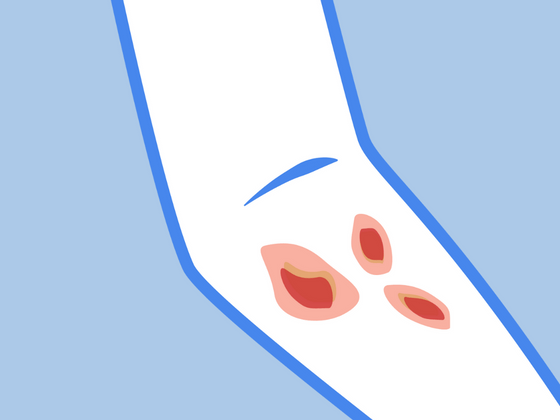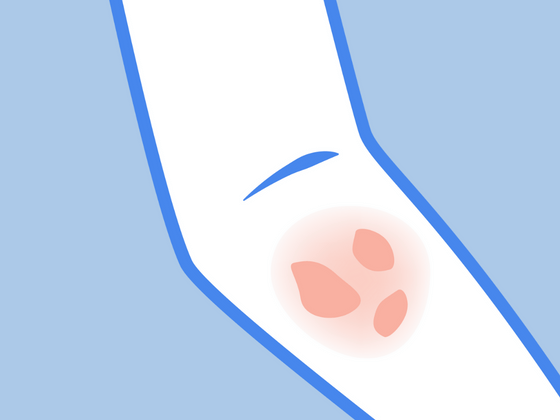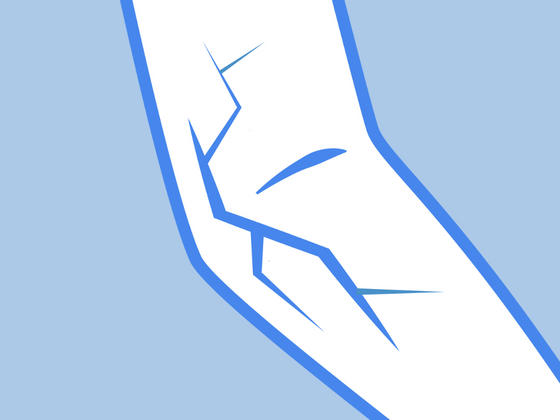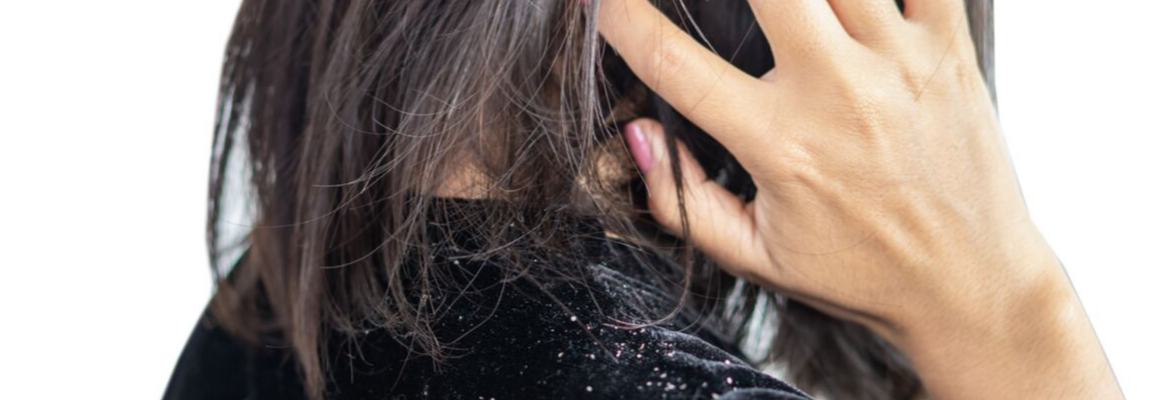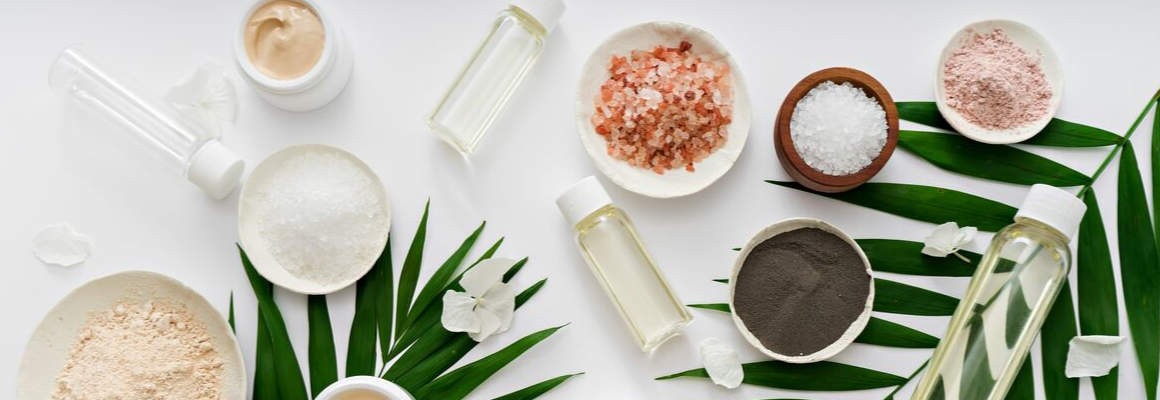Dermatitis is a general term that describes skin inflammation involving itchy, dry skin or swollen, red skin, or sometimes even white spots. A common condition, it has many causes and comes in various forms.
In this guide, we’ll discuss the many different types of dermatitis and suggest some natural treatments.
Types of Dermatitis
Dyshidrotic Eczema (DE)
characterized by small blisters filled with clear liquid. Usually, these blisters appear on the hands and feet and are often very itchy and painful. Once blisters clear (after 2-3 weeks), the skin underneath is typically cracked, red, and dry.
For treatment, we recommend this moisturizing Organic Manuka Skin Soothing Cream. It’s excellent for soothing irritated skin and provides nourishment from its Manuka, organic tree nut-free oils, and beeswax ingredients.
Are you suffering from painful blisters? Find out how to treat eczema blisters naturally.
Seborrheic Dermatitis
Typically begins as stubborn dandruff on the scalp, which develops into scaly patches, red skin, increased irritation, and even crust on the scalp. Affected areas can be sore and itchy with greasy-looking skin flakes. In severe cases, itchiness and sensitivity can extend to oily areas on the body, including behind the ears, over the eyebrows, on the side of the nose, and around the chest.
Perioral dermatitis
A form of dermatitis that appears as a scaly or red bumpy rash around the mouth. In some cases, there may be a clear fluid discharge, redness, or a burning sensation.
It commonly appears in women between 16 and 45 years old, but it can also affect men and children. While the exact cause is unknown, research suggests it may be triggered by topical steroids applied to the face.
Stasis dermatitis
A skin inflammation that develops in those who have poor circulation - which explains why it most commonly occurs in the lower leg.
Typical characteristics include swollen legs and feet, open sores, scaling, itchy and reddish skin, and calf tenderness.
Contact Dermatitis
An itchy, red rash that develops in response to direct contact with a substance in the environment. Essentially, it is an allergic reaction.
Common irritants of contact dermatitis include fragrances, animal dander, dust mites, cosmetics, and pollen. Also known as contact eczema, it usually affects the hands, arms, face, and legs.
To prevent contact dermatitis on your hands, Remedywear™ clothing for eczema also offers a variety of garments that can help protect skin from irritants while soothing it with TENCEL and anti-inflammatory. Some of our favorites are:
Remedywear Long Sleeve Shirt for Adults
Remedywear Long Sleeve Shirt for Kids
Remedywear Long Pants for Adults
Remedywear Long Pants for Kids
Check out our selection of Remedywear clothing perfect for contact dermatitis here.
Nummular Dermatitis
A chronic condition that causes ‘coin-shaped’ patches to appear on the skin. These patches are itchy and swollen and may become crusty or weep a clear liquid. Although they can appear anywhere on the body, they usually don’t affect the face or scalp.
Neurodermatitis
Starts as an itchy patch of skin on the arm, leg, or on the back of the neck. In some cases, it can develop in the anal or genital areas. The itchy-scratch cycle associated with this condition causes the skin to appear thick and leathery. The urge to itch is typically heightened when under stress.
Again Remedywear, clothing for eczema can be an excellent solution for relentless scratching. For children, we also recommend these ScratchSleeves with Scratch Mittens.
Dermatitis herpetiformis (DH)
An auto-immune condition linked to celiac disease. Symptoms include raised, red patches of skin with blisters that burst with scratching, accompanied by intense itching and stinging. The rash most commonly appears on the knees, buttocks, and elbows.
While it can develop at any age, it typically affects those between 50 and 69.
Soothe your itchy skin with this Emily's Hot Skin Soother, or try wet or dry wrap therapy using these Remedywear Sleeves for kids and adults.
Atopic Dermatitis
A common skin disease in children that can also affect adults. For affected children, consider using eczema cream for babies. More commonly known as simply ‘eczema,’ it is characterized by dry, scaly patches on the scalp, forehead, cheeks, and face. As a chronic condition, its symptoms tend to flare periodically.
While the exact cause of eczema is unknown, it is believed to be triggered by several factors, such as:
Airborne allergens: Anything in the environment can trigger eczema, including dampness, house dust mites, pollen, and molds. Other environmental factors include extreme hot or cold weather and pet fur.
Food allergies: Common food triggers include dairy, eggs, nuts, spices, and gluten. Bear in mind that there is a difference between a food allergy and a food sensitivity. While undergoing an elimination diet may help determine which foods are causing flare-ups, remember to always work with a dietician, nutritionist, or physician to ensure you are still getting all the essential nutrients.
Fabric Irritants: Common fabric irritants include latex, polyester, nylon, and wool. Also consider using detergent for sensitive skin when washing fabrics. Try wearing hypoallergenic or latex-free eczema clothing instead. Discover why eczema clothing is an essential part of eczema therapy.
Medications: Creams and ointments uMedications: Eczema cream and ointments used to treat atopic eczema can trigger eczema in individuals - mainly if they contain chemicals or harsh toxins.sed to treat atopic eczema can trigger eczema in individuals - mainly if they contain chemicals or harsh toxins. If this occurs, discontinue use immediately and speak to your doctor. Learn how you can naturally treat your eczema here.
Psoriasis
While technically not a form of dermatitis, psoriasis is often confused with eczema. This autoimmune condition affects 125 million people worldwide and normally occurs equally in men and women.
Psoriasis is characterized by scaly red, crusty patches of skin covered with silvery scales and is typically found on the elbows, scalp, lower back, and knees.
We recommend this 20% Pine Tar Soap to treat psoriasis 20% Pine Tar Soap because it helps restore the skin’s natural appearance and reduces the inflammation, itching, and scaling associated with psoriasis. In addition, this Organic Manuka Skin Soothing Cream is also an excellent treatment for psoriasis, as it acts as an intensive moisturizer.
If you suffer from dermatitis or psoriasis, let us know your favorite natural treatments!
------------------

Bio: Laura is a contributor and content developer for The Eczema Company. She is in no way a medical professional. Her comments, suggestions, and reflections are not intended to replace any medical advice. Always seek the help of a medical professional before undertaking any diet or lifestyle changes.

